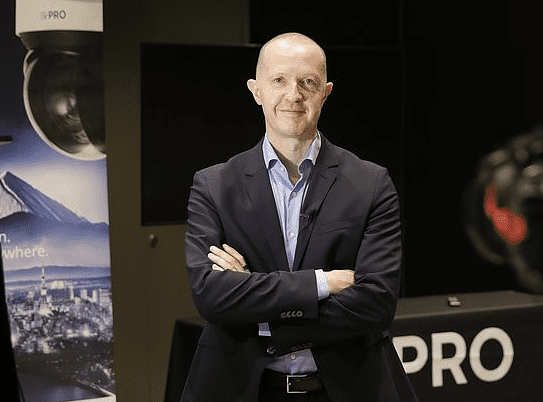Pictured above: Dr Martin Wright, a former police officer with more than three decades of experience.
The Global Institute of Cyber, Intelligence and Security (GICIS) was founded in 2014 to fulfil the needs of a key, fast-growing sector. As well as addressing the much debated ‘skill gap’ in the cyber intelligence industry, there are a number of key factors that led to the founding of the institute. The impact of the recession and budget cuts upon the uniformed public services in the UK has led to a number of significant considerations and changes and reductions to the internal provision of training and education. It has also provided opportunities for the services to reflect upon their own aspirations regards their future professional status. In essence, somewhat unlike the long-established practices in other disciplines within the public sector, e.g. medicine, health and social care, education, etc. the uniformed services have yet to ‘require’ applicants for roles to have undertaken a pre-employment programme of higher education and vocational training. The achievement of such pre-employment education and training, not just for the uniformed services but also the wider ‘security-related’ industry clearly raises their professional standing.
The other main driver was the recognition that there was an opportunity to provide a comprehensive and independent ‘knowledge’ solution to international clients, students and governments, from consultancy to tertiary education. While other education providers, such as individual universities would be unable to offer a comprehensive suite of academic programmes to vocational applied training it was also recognised that ‘security-related’ companies would be constrained and conflicted by the focus on their own products. To that end it was recognised that for clients such as large corporation or government departments the opportunity to engage with a single provider who can provide the suite of ‘knowledge solutions’ was attractive.
The development of GICIS has been led by Dr Martin Wright, a former police officer with more than three decades of experience. Martin was instrumental in the creation of a number of under and post-graduate degrees at a UK university, most particularly focussed upon the uniformed public services. For example, the validation of a pre-employment and vocationally focussed BSc (Hons) Armed Forces degree was a first for a UK university. Taken together the validation of under-graduate degrees in Policing, Fire & Rescue and Armed Forces created a truly unique offer for students and employers. The further development of more specialised post-graduate degrees in the Management of Fraud Investigation, Cyber Crime Intelligence, Policing & Law Enforcement, etc. was aimed at meeting the ‘in-service’ professional development needs of serving police officers.
GICIS has engaged with a number of high-quality education providers who have a proven practical and academic background. Again rather uniquely the institute has brigaded the talents, experience and expertise of individuals who offer education and consultancy solutions from defence of the realm to building community resilience. The institute is able now to offer a number of unaccredited ‘short courses’ across a wide range of disciplines. These are available for inspection on the GICIS web-site which has been organised into four broad subject areas; Resilience, Policing, Cyber Security and Defence & Security.
Alongside those significant development the institute is currently supporting a number of educational developments, such as agreeing new academic partnership with universities and awarding bodies internationally and the validation of under and post-graduate degrees in subjects, such as policing, maritime security, etc. The future of ‘security-related’ education and training is undergoing a period of some significant change, not least amongst the uniformed public services. GICIS fully intends to support these developments towards ‘professionalisation’ through the provision of high-quality training and education.
GICIS is part of the Global University Systems, an international group comprising global higher education institutions with 40,000 students and campuses in the UK, Canada, Germany and Singapore. The group includes institutions such as the London School of Business and Finance (LSBF), GISMA Business School and the London College of Contemporary Arts (LCCA).


























